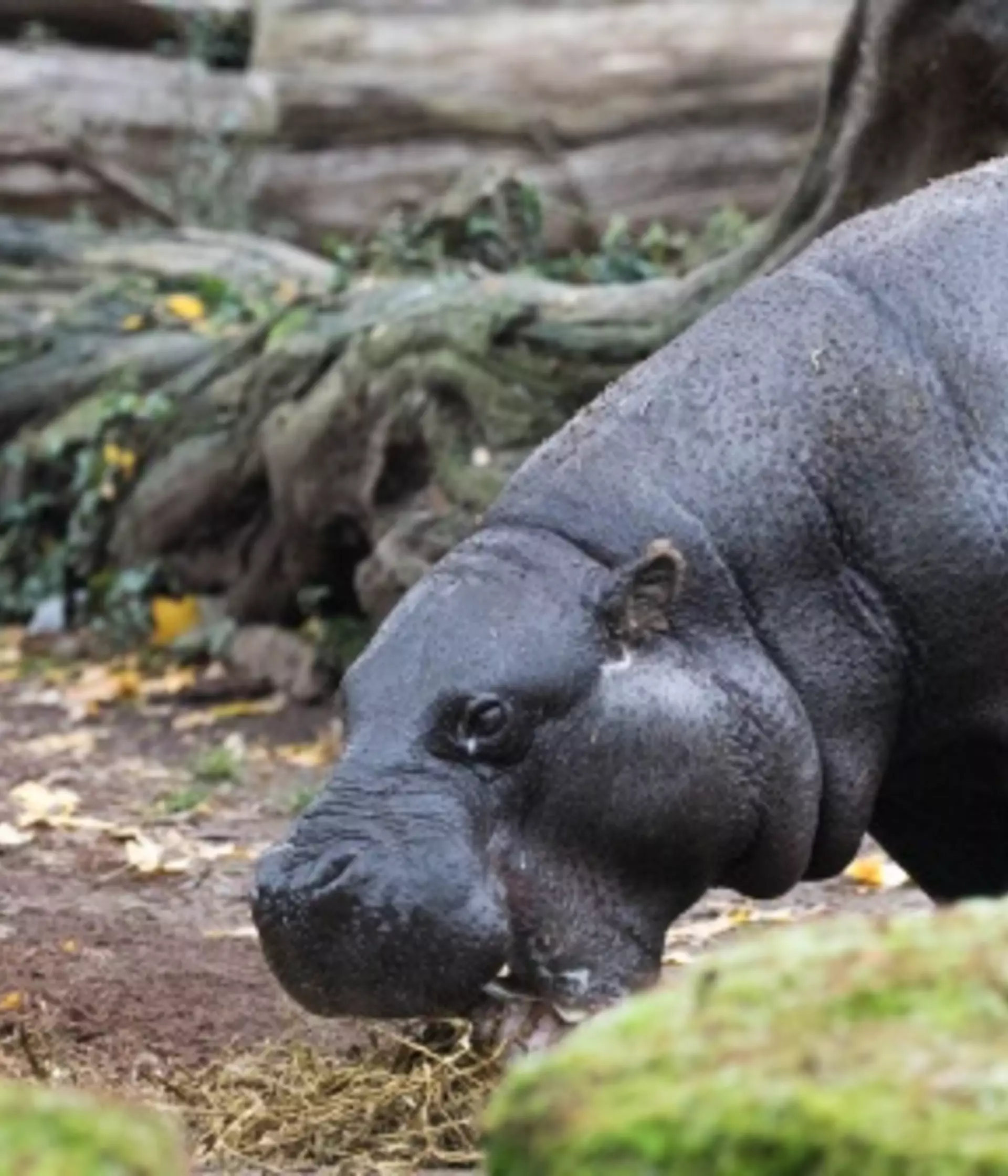Pygmy hippo facts
Hippos have very sensitive skin which easily becomes dry and cracked. A fluid oozes from glands under the skin which helps keep the skin moist and stops sunburn. Pygmy hippos like being alone and avoid each other in the wild, meeting only to mate. They're surprisingly fast at 18.5mph, only a few mph slower than Usain Bolt at his peak! But they are still not match for the speed of the common hippo, which can run 30mph. Pygmy hippos are the only surviving member of their genus.
Difference between pygmy and common hippo
The pygmy hippopotamus is, as its name suggests, much smaller in size than the common hippopotamus – which weighs approximately five times more. Pygmy hippos, unlike common hippos, are far more adapted to a land-dwelling lifestyle with fewer webbed toes and a smaller more streamlined head. Pygmy noses are less prominent than common hippos, which have noses specially adapted to peak out of the water for breathing. Significantly their eyes are on the sides of their head instead of on top showing enabling them to see better whilst running through forests. Both sexes have long tusks and are usually difficult to tell apart. Common hippos are also far more common than pygmy hippos, with 130,000 common hippos across Africa.
Pygmy hippo threats
Hunting by people and habitat loss. Many populations of hippos have become fragmented due to logging, mining, farming and other human activity. As pygmy hippos are forced to engage with local communities, they come under more and more danger from extinction. Leopards are their natural predator.
Our pygmy hippos
There’s nothing pygmy hippos love more than having plenty of sleep and long soaks in warm water. Our pygmy hippo enclosure has been equipped with solar panels to make sure their hippo pond is always a nice temperature, ensuring these lovely hippos stay nice and warm all year long.
Pygmy hippo conservation
There are less than 2500 pygmy hippos left in the wild, and a Nigerian subspecies has already gone extinct. At ZSL, we've been working with pygmy hippos to save them from the brink of extinction.
